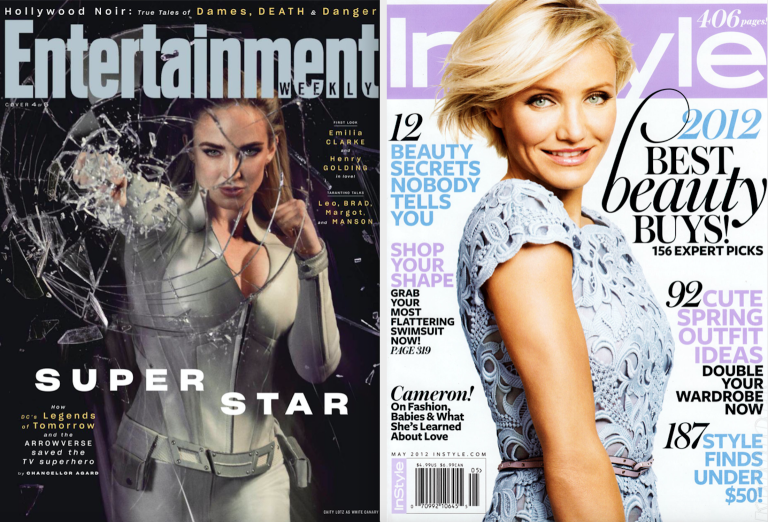
Gutenberg be damned—Entertainment Weekly and four other titles are shifting from print to digital-only content beginning in April, according to Barry Diller’s IAC/Interactive group, which acquired them from Meredith last year, folding them into Dotdash Meredith. The other four magazines included in the shift are Eating Well, InStyle, Parents, and People en Español. It’s been reported that 200 employees will be axed as a result of the move.
Industry observers point to the waning of print media as readers increasingly turn to digital devices for content, a trend that has only been accelerated by the pandemic. In a memo sent to employees, Dotdash Meredith CEO Neil Vogel explained: “It is not news to anyone that there has been a pronounced shift in readership and advertising from print to digital, and as a result, for a few important brands, print is no longer serving the brand’s core purpose.”
Entertainment Weekly started entertaining readers in 1990 when it was a Time Inc. property. It quickly became a significant publication in the pop culture realm, feeding the public’s insatiable appetite for news about Hollywood and TV stars. IAC bought the publications from Meredith in late 2021, paying $1.8 billion. Dotdash Meredith said it had no plans to end print production of its 19 other titles, including the iconic People and Better Homes & Gardens.
Still, there seems to be hope that print will survive, at least for the foreseeable future. As Vogel wrote in his memo, “Naysayers will interpret this as another nail in print’s coffin. They couldn’t be more wrong — print remains core to Dotdash Meredith.” Commenting on the demise of its print version, former EW staff writer Benjamin Svetkey wrote this week in The Wrap:
“There was a time, eons ago, when one simple declarative sentence could prick up ears all over Hollywood, and sometimes send shivers of fear and loathing down the whole town’s spine. It usually began something like, ‘Entertainment Weekly is doing a story on…’
“It’s hard to imagine in 2022, in a world where print magazines seem about as relevant as ladies’ hats and men’s spats, but back in the 1990s and well into the 2000s, EW was the most powerful voice in entertainment journalism,” one that thrived because of its “super savvy, smart-ass-y attitude.”

